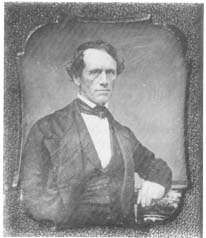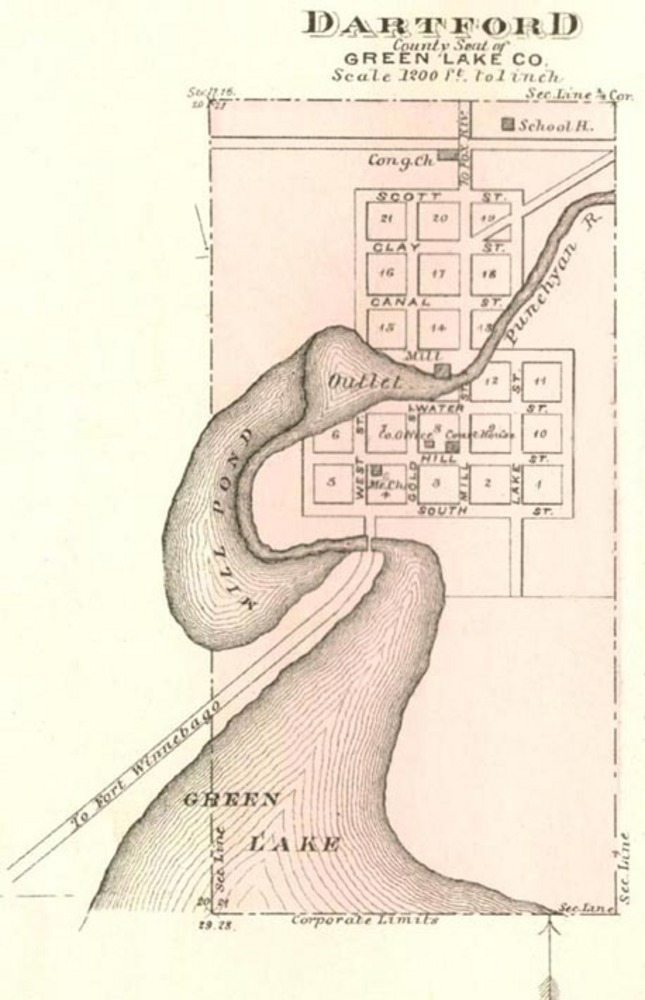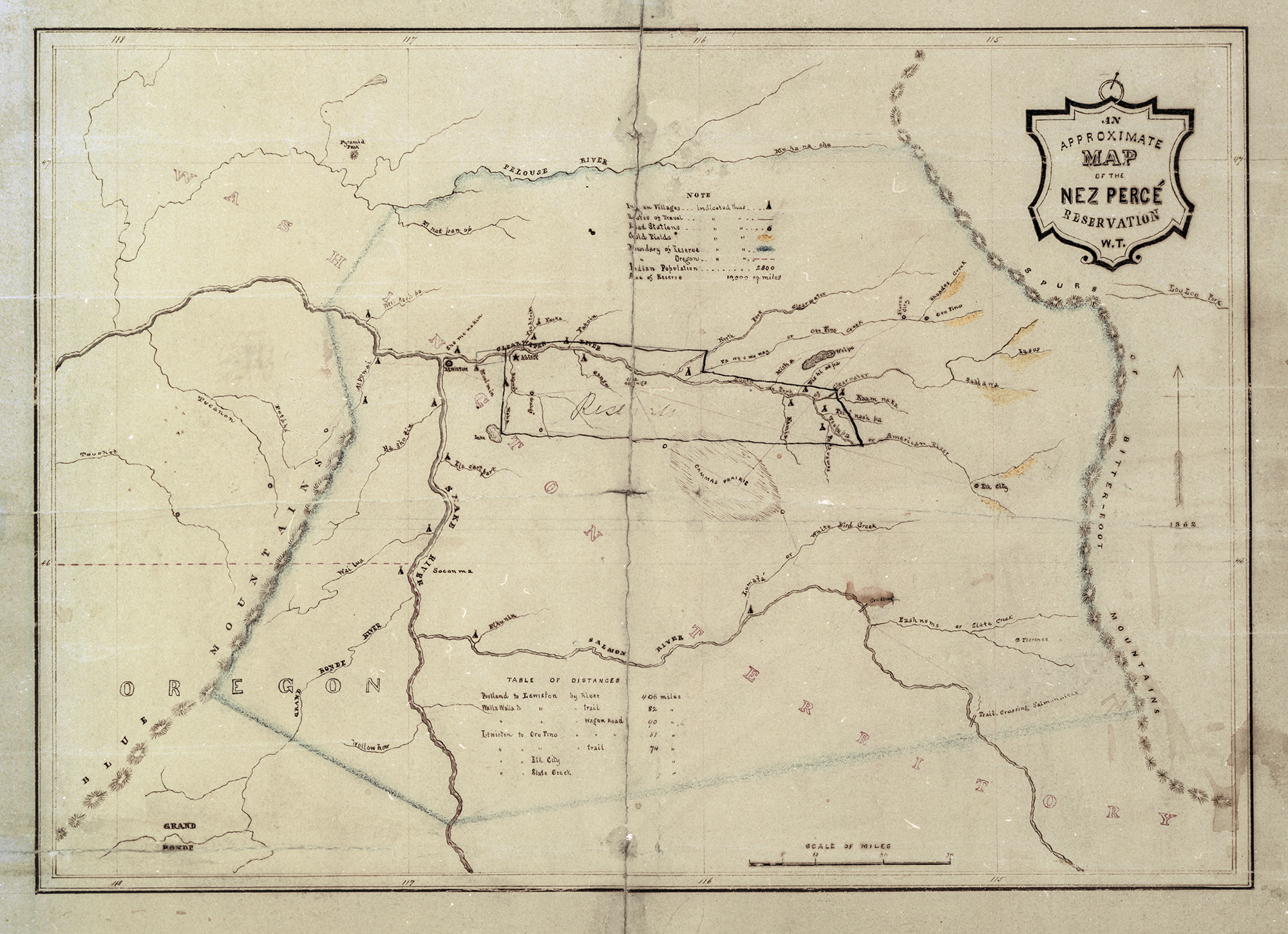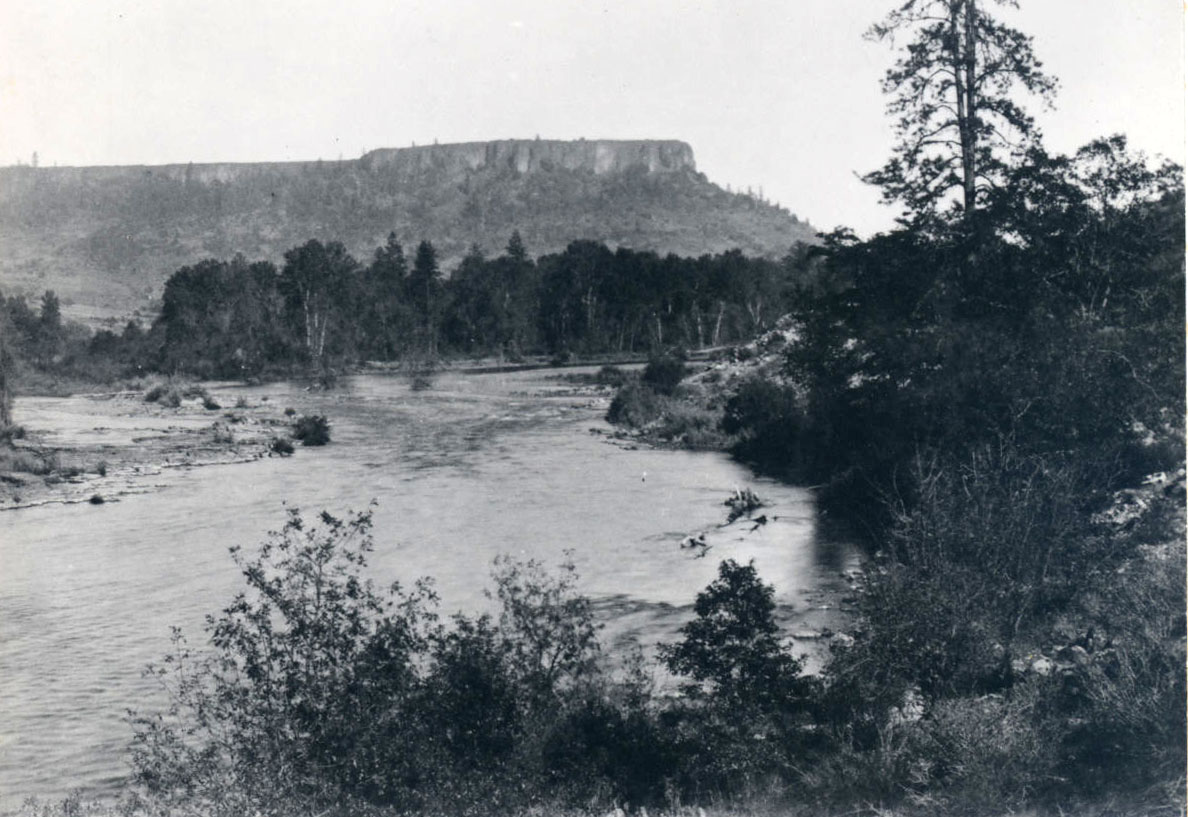In 1850, Anson Dart (1797-1879), of Wisconsin, was appointed as the first superintendent of Indian Affairs for the Oregon Territory. He received his instructions on July 20, 1850, and arrived in Oregon in October with his secretary, P. C. Dart. His mission was to negotiate treaties between the federal government and tribal nations.
Through treaties, the federal government intended to extinguish the title to all aboriginal land claims west of the Cascades and to move the tribes to reservations east of the Cascade Range. In December 1850, and later in 1851, Dart requested U.S. troops to be sent into the Umpqua basin based on the need to keep order in a rapidly changing and volatile environment between the tribes and the settlers.
Three commissioners of Indian Affairs were appointed to help Dart: John P. Gaines (governor of the Oregon Territory), Alonzo A. Skinner, and Beverly S. Allen. The commissioners were given several charges:
1. To make treaties with the Willamette Valley tribes and to offer a maximum of ten cents an acre.
2. To offer no monetary settlements for Indian title, but instead to trade merchandise in annual installments.
3. To halt the liquor trade with Indians.
4. To purchase supplies from American merchants rather than the Hudson's Bay Company so that the Indians would ally with the Americans in the region.
5. To steer Indians into agricultural and ranching pursuits and to encourage missionaries to Christianize the Indians.
In April and May 1851, Dart and the commissioners signed five treaties with the Kalapuya and Molala tribes of the Willamette Valley and the Cascade Range. In June, he traveled east to the Umatilla, Waiilatpu, and Lapwai areas to meet with the tribes there. Exhibiting a fairness and political acumen beyond that of many of his contemporaries, he pledged to negotiate fairly and offered to pay the tribes for their land. He also promised that the eastern tribes could choose their own teachers and that they would not be "disturbed in their religious practices"—a promise that contradicted the government’s orders to bring American missionary teachers among the tribes. Nevertheless, Dart failed to reach an agreement with the tribes, and the negotiations failed. Before returning to western Oregon, he was able to establish the short-lived Umatilla Indian Agency.
From August to September, Dart negotiated thirteen treaties with the Chinook tribes on the Columbia River, the Tillamook tribes of the northern Oregon Coast, and the Rogue River tribes at Port Orford, conducting most of the negotiations without help from the commissioners. In November, a treaty was signed by the Clackamas Tribe at Oregon City, and Dart left for Washington, D.C., to deliver the treaties.
In all, Dart negotiated nineteen treaties with Oregon tribes, acquiring about six million acres for the U.S. government at a cost of about three cents per acre. The treaties created reservations for all of the tribes within their traditional homelands and provided large annual appropriations for the land ceded to the United States.
When the treaties were submitted to Congress on July 1, 1852, they were opposed by Secretary of the Interior Alexander H.H. Stuart because they failed to remove the Indians to the east and, thus, failed to fully clear the western Oregon lands for American settlers. The treaties were heard in the Senate on August 21, 1852, and then tabled forever, never to be ratified.
At the same time, conflict erupted between the Rogue River and Shasta Indians and the settlers and miners in southwestern Oregon. Dart and his commissioners spent time in the region negotiating and enforcing a peace, despite the actions of the American settlers to foment war with the Indians. Dart was told not to negotiate any more treaties except as necessary to keep the peace. He resigned his appointment in December 1852, and in March 1853 Joel Palmer was appointed as superintendent of Indian Affairs for the Oregon Territory.
In 1859, J.R. Orton reported in the New York Times that “during the whole of his [Dart’s] superintendency, peace and quiet were maintained among all of the Indian tribes under his care, and also between them, and their white neighbors” and that “during his term, not a cent of money was expended to quell Indian difficulties.” The failure of Congress to ratify Dart’s treaties contributed to the beginning of increased hostilities and wars between settlers and the tribes in Oregon through the 1850s.
In 1861, President Abraham Lincoln refused to appoint Dart as superintendent of the Washington Territory, anonymously citing disparaging comments about Dart’s character from leading Oregon politicians.
-
![]()
Anson Dart.
Courtesy State Historical Society of Wisconsin
-
![Dartford Township, Green Lake County, Wisconsin, in 1878, now known as the town of Green Lake.]()
Dartford, WI, map of, 1878.
Dartford Township, Green Lake County, Wisconsin, in 1878, now known as the town of Green Lake. Courtesy Jean Bucknum, orig. published in _Illustrated Historical Atlas of Wisconsin_, Milwaukee, WI, Synder, Van Vechten & Co., 1878
Related Entries
-
![Alonzo A. Skinner (1814-1877)]()
Alonzo A. Skinner (1814-1877)
Alonzo A. Skinner was the first judge in the Pacific Northwest, althoug…
-
![Native American Treaties, Northeastern Oregon]()
Native American Treaties, Northeastern Oregon
After American immigrants arrived in the Oregon Territory in the 1840s,…
-
![Willamette Valley Treaties]()
Willamette Valley Treaties
From 1848 to 1855, the United States made several treaties with the tri…
Related Historical Records
Map This on the Oregon History WayFinder
The Oregon History Wayfinder is an interactive map that identifies significant places, people, and events in Oregon history.
Further Reading
Bancroft, Hubert Howe. The Works of Hubert Howe Bancroft, Vol. 30. History of Oregon, 1848-1888. San Francisco: The History Company, 1888.
Prucha, Francis Paul. American Indian Treaties: The History of a Political Anomaly. Berkeley: University of California Press, 1994.





